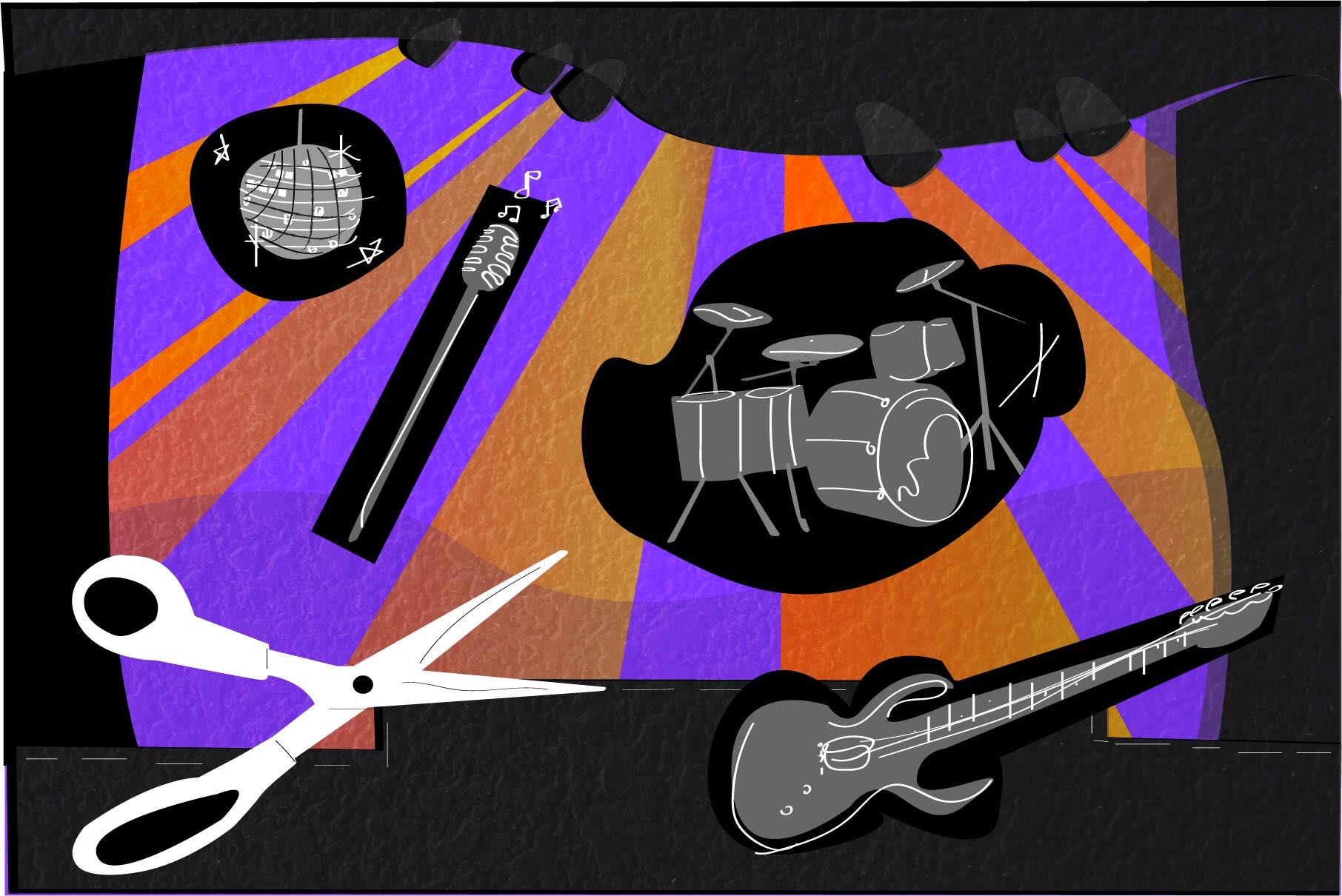Six months ago, my three roommates and I moved into a four-bedroom apartment on the second floor of an old house in downtown Ithaca, New York. It’s dirty, the couch came torn and concave, the sink is broken and corners of the ceiling are separated from the wall. I was well aware of the existing damage when I signed the lease almost a year in advance, and I could not have been more excited.
Not only would it be our first apartment together, but it came with one other major benefit: the pièce de résistance in the house was the attic, which featured a high, slanted-inward ceiling and enough floorspace to sleep several dozen people with room remaining to walk throughout.
Before my roommate had even sat down to rest from his several-hour drive, we had already moved a drum kit, three amps and a PA system into the attic, christened the room Goo Lagoon and began booking the first year of shows. Six months, two holes in the wall, thousands of scattered cans of cheap beer and five shows later, here’s what I’ve learned from running a DIY music venue.
1. Your Definition of “Alone” Will Change Forever
What comes to mind when you think of being alone? Isolation in the middle of the desert? That episode of “Spongebob” where he breaks reality via a time machine and winds up in a formless white space with seemingly no end? Sleeping in your bed by yourself for the first time post-breakup?
Open your doors to a couple hundred strangers, some drunk musicians and some nice-if-somewhat-frustrated neighbors and you’ll understand that the feeling of being alone is not one that comes only from isolation.
While, for the sake of the bands, the shows should always be open to the public, it is nearly impossible to shake the feeling of shock seeing an entire floor of your house occupied primarily by people you, at best, know by name and, at least, have never seen before.
You will come to terms very quickly with the fact that occupying a shared space does not equal companionship. The good news is that this means the show was a resounding success, and hopefully everyone there had a good time.
It also means that you and whomever you have assisting you run this mess are at least somewhat responsible for the lives of everyone in the house, as well as the security deposit laid down on it, and no matter how many of you there are regulating the ins and outs of the show, it will never feel like enough.
You are on your own, and it is your sole responsibility to swallow whatever feelings that brings up and continue to make sure that the night runs smoothly.
2. Your Own Moral Priorities Will Shift
Pretty early into the booking and organization process of show after show, there is going to come a point where you will be asked for more than you expected to have to give. While you are by all means doing the artists performing at your venue a favor, providing them a space to perform and the necessary equipment and staff to do so, on most fronts the show and venue belong more to the performers than to you.
You are not running the venue for profit or your own self-promotion; you are running the venue because live music is a beautiful and important thing that, at the DIY level, is unendingly difficult to find opportunities to support. As a result, it is your responsibility to provide accommodations and flexibility to the acts you host.
This means more than simply offering a full PA set up and space in which to perform. It means listening to the specific requests of the bands: when they want to play and who they want to play with. There are a lot of moving parts and individuals that go into putting on a successful show, and as the person running the venue you have to be receptive to the needs and opinions of all of these people.
Your job does not stop when you finish booking the space, bands and crew. Until the last audience member has left the venue and the final guitar has been loaded out, it is on you to make sure that everyone is comfortable, safe and having a good time.
3. There Are Always Going to Be Problems, So Choose Your Battles
Technical difficulty is the name of the game with DIY music. No matter how reliable the gear, the venue or your coworkers, issues with timing and equipment are inevitable. Your priority above anything else should be the safety of everyone in the building; the second anything could potentially threaten the structural integrity of the space, deal with it immediately.
If that means cutting the PA and evacuating, do it. If that means unplugging the central power source, do it. DIY music, at its heart, centers around the safety and support of the community, so honor that beyond anything else.
Interpersonal disputes are slightly more variable in how you should handle them. To echo the previous point, if any attendees or performers are making any of the other inhabitants of the venue feel unsafe or uncomfortable, see to it that they are removed from the premises quickly and nonviolently. The moral integrity of the space should be upheld with great sanctity.
As far as equipment malfunctions go, there are a number of approaches that you could use situationally. If the gear is the venue’s, establish a system for troubleshooting before the show starts. Make sure you or someone else in proximity has a level of familiarity with the house’s equipment, and keep calm when attending to the malfunctions.
If the gear belongs to the performers, offer any assistance you can but, bottom line, it’s their responsibility to make their setup work and play their allotted time. Be friendly, be patient but don’t blame yourself if their rigs are the ones derailing the show. You are contributing to a beautiful thing, embrace it and all of its accompanying baggage.
















